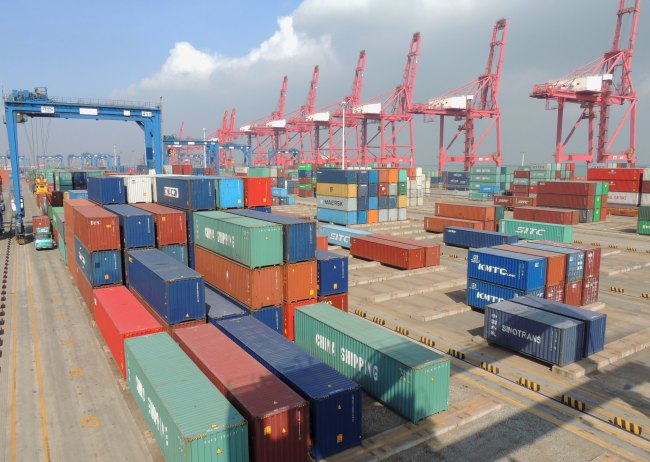[
THE INVESTOR] The South Korean economy could be hit hard if China increases non-tariff barriers that restrict the sale of Korean-made goods, as the country is heavily dependent on China for exports, industry data showed on July 12.
According to a report released by Hyundai Research Institute, the amount of Korea’s export to China affected by the two most common non-tariff barriers -- technical barriers to trade and sanitary and phytosanitary measures -- has sharply increased since 2008.

The number of export transactions affected by SPS spiked from 249 in 2000-2008 to 887 in 2009-2015, while the number of exports affected by TBT increased from 507 to 681 in the same period.
“Ever since the ‘garlic war with China’ in 2000, China expanded SPS and TBT into its non-tariff barriers,” said Han Jae-jin, a researcher at the Hyundai Research Institute.
The number of goods that were denied entry for trivial reasons, such as bad packaging or poor labeling, increased as well.
A total of 499 Korean goods were rejected at the customs from 2013 to 2015. Among them, 346 products, or 69.3 percent, were processed goods, the highest percentage of all the rejected products.
The think tank also raised concerns about the repercussions on Korea’s trade with China as the result of Korea’s latest decision to deploy the Terminal High Altitude Area Defense system here.
“We need to strengthen our competitive edge and improve the quality of exported products to meet the Chinese standards,” Han said. “Korea needs to aggressively make use of the Korea-China free trade agreement to come up with countermeasures to protect Korean goods from China’s non-tariff steps.”
By Ahn Sung-mi (
sahn@heraldcorp.com)




![[Herald Interview] 'Trump will use tariffs as first line of defense for American manufacturing'](http://res.heraldm.com/phpwas/restmb_idxmake.php?idx=644&simg=/content/image/2024/11/26/20241126050017_0.jpg)


![[Herald Review] 'Gangnam B-Side' combines social realism with masterful suspense, performance](http://res.heraldm.com/phpwas/restmb_idxmake.php?idx=644&simg=/content/image/2024/11/25/20241125050072_0.jpg)
![[Health and care] Getting cancer young: Why cancer isn’t just an older person’s battle](http://res.heraldm.com/phpwas/restmb_idxmake.php?idx=644&simg=/content/image/2024/11/26/20241126050043_0.jpg)